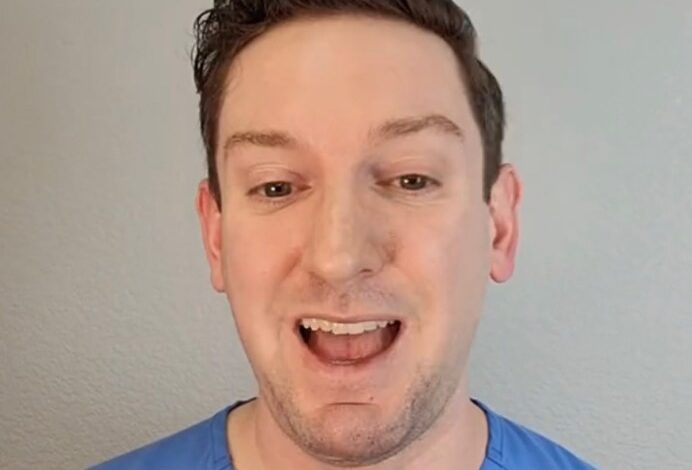Doctor praises cognitive shuffling hack to quickly fall asleep

Knock yourself out!
Dr. Scott Walter, a board-certified dermatologist in the Denver area, says you can count on the “cognitive shuffling” mind trick to quickly fall asleep.
“It’s a way to rearrange or reorganize your thoughts similar to shuffling a deck of cards — basically, distracting your mind from conscious thought patterns that may keep you awake,” Walter said in a TikTok last week that has captivated over 4.2 million viewers.
50 to 70 million Americans suffer from chronic sleep disorders, according to government estimates. In 2020, 14.5% of US adults reported having trouble falling asleep every day or most days. Unfortunately, prolonged sleep loss can lead to several health problems, including high blood pressure, high cholesterol, diabetes, stroke, obesity, and depression.
For his part, Walter called cognitive shuffling an “absolute game-changer” for him, explaining that it “mimics what are called microdreams, which occur during the transition to sleep, [letting] your brain know, hey, it’s safe to fall asleep.”
Walter shared a few ways to exhaust this technique.
“One is just thinking of random words or objects that have nothing to do with each other,” he described. “For example, cow, leaf, sandwich, butter, liver, things like that — just random words that make no sense.”
Another strategy involves selecting a letter of the alphabet and counting your heartbeat.
“Every eight beats, you think of a word that begins with that letter,” Walter said.

Dorsey Standish, a mechanical engineer, neuroscientist, and CEO of Mastermind Meditate, recommends picking a root word like “relax.”
Start by picturing words that begin with “R” — “rat,” “rest,” rent,” etc.
When you can’t think of any more “R” words, move on to “E” and so on until you fall asleep, which Standish says should take between 10 and 15 minutes.
“A technique like cognitive shuffling can assist the nervous system in relaxing and letting go into sleep,” Standish told Eat This, Not That! last year. “If you can’t find relaxation in the cognitive shuffling technique, you can try other mindful sleep techniques like deep breathing with extended exhales or a progressive relaxation body scan, which have also been shown to calm the nervous system and promote an easier transition to rest.”
One TikToker said the cognitive shuffling strategy put to rest 25 years of sleep struggles. Another claimed it helped cure her insomnia.
“It actually helps me to not overthink since the words and the order of them doesn’t make sense at all,” she wrote.




